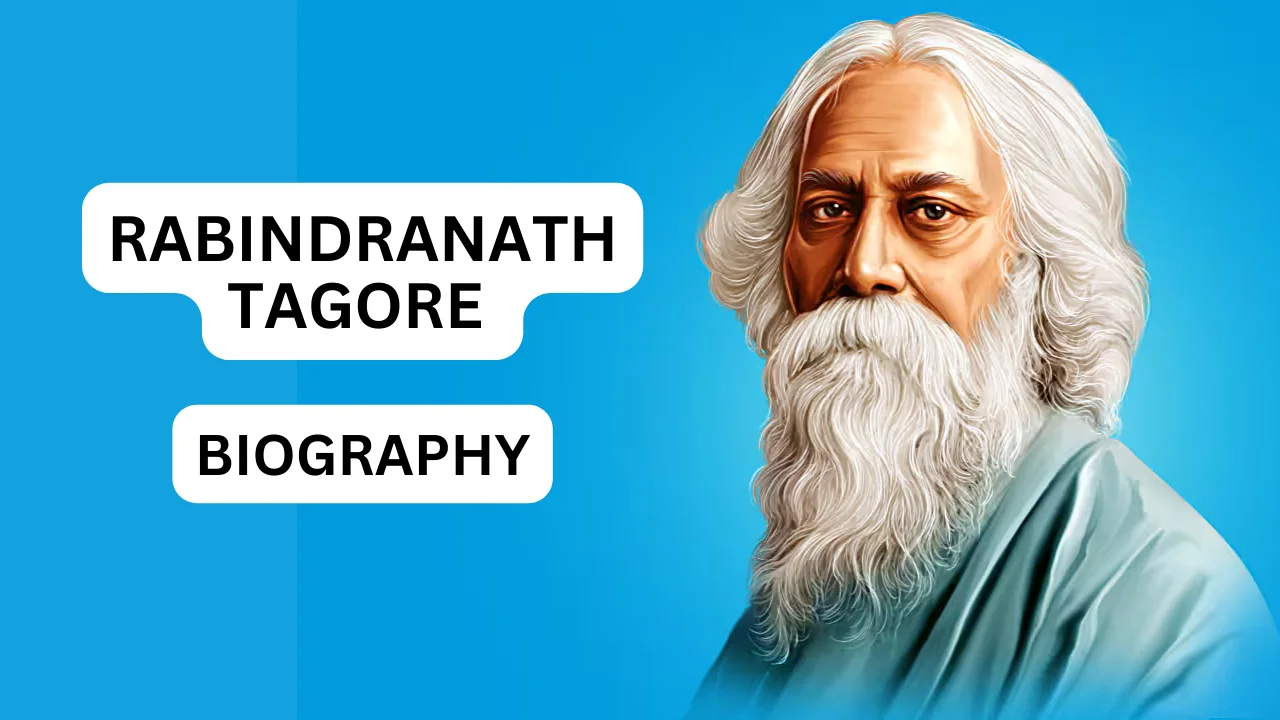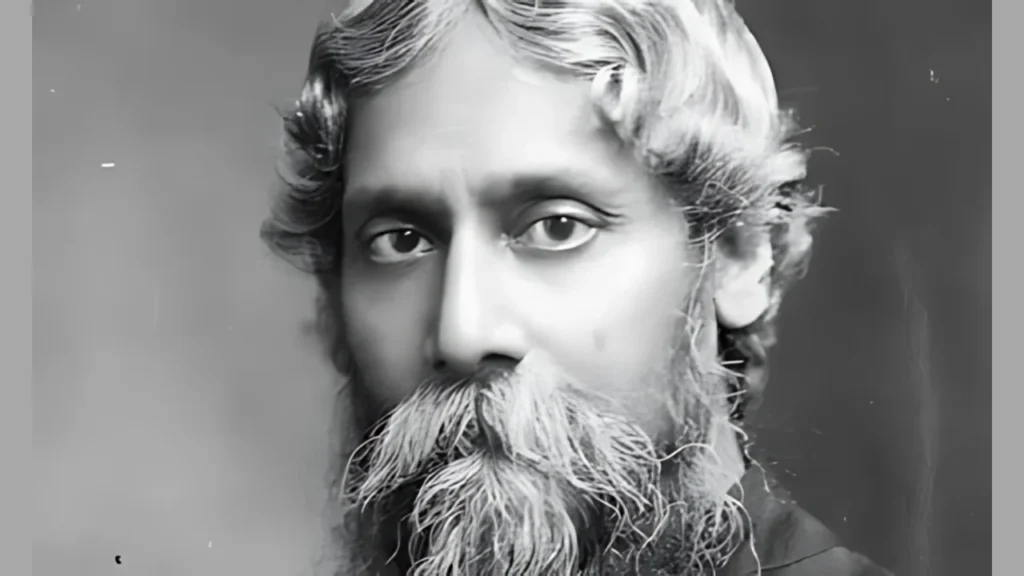Rabindranath Tagore Biography, Controversies, Awards and Prizes

He was a poet, a novelist, a painter, a social reformer, a composer, and a philosopher. However, Rabindranath Tagore has written many poems, short stories, novels, and dramas. Despite being Bengali, he started writing in Bengali only to translate most of them into English, which was a breakthrough in his literary career.
His first language was Bengali, but he nonetheless began his works in Bengali only to translate many into English, marking a turning point in his literary life. Tagore was a versatile genius who might be termed “here is God’s plenty,” as his colleagues recognized him as “Gurudev.”Tagore is known as a versatile person, his friends used to call him Gurudev. Tagore’s own country, India, always had very high esteem for him, taking him as a polymath who they called “Gurudev”. Tagore could do many things well so he was given the prophetic name Gurudev which close people and collaborators recognized.
Table of Contents
Who is Rabindranath Tagore?

Rabindranath Tagore is the son of Debendranath Tagore and Sarada Devi, born on May 7, 1861, in Calcutta, Bengal Presidency, British India (now Kolkata, West Bengal, India). His childhood comprised the services of servants because his mother died while he was young and his father used to move a lot. Rabindranath Tagore was one of the greatest figures in the history of Indian English and Bengali literature. His contribution to the nascent literature of Indian English or Bengali is significant and remarkable. However, Tagore didn’t experience academic struggles due to a lack of proper schooling. His conscious mind and his capacity to penetrate or understand the nature of things made him a great literary figure.
Also Read:- Shweta Singh Biography | Poonam Pandey Biography | Shakti Mohan Biography
Rabindranath Tagore Biography
| Full Name | Rabindranath Tagore |
| Birth Name | Robindronath Thakur |
| Date of Birth | May 7, 1861 (Tuesday) |
| Hometown | Calcutta (now Kolkata) |
| Father | Debendranath Tagore (1817–1905) |
| Mother | Sarada Devi (1830–1875) |
| Nationality | British Indian |
| Zodiac sign | Taurus |
| School | Bengali-medium schools |
| Date of death | 7 August 1941 |
| Place of Death | Jorasanko mansion” (Jorasanko Thakur Bari), Calcutta, Bengal Presidency, British India (present-day Kolkata, West Bengal, India) |
| Age (at the time of death) | 80 Years |
Family Background and Siblings
His elder brother, Dwijendranath Tagore, was a poet and philosopher. Tagore’s younger brother, Satyendranath, became the first Indian to join the Indian Civil Service. While his brother Jyotirindranath was a musician, music composer, and playwright, Swarnakumari was a writer. Hemendranath, the biological younger brother of Rabindranath, taught him about geography, history, mathematics, philosophy, and science. Also, Hemendranath taught the English aristocracy of the time history and human anatomy. After visiting his father’s Santiniketan estate, Rabindranath Tagore spent a month in Amritsar. Tagore then traveled to Dalhousie in the Himalayan hills, where he read biographies and researched topics such as history, astronomy, modern science, and Sanskrit; furthermore, he looked into the classic poetry of Kalidasa.
Religion/Religious Views by Rabindranath Tagore
Even though Tagore conformed to Brahmo Samaj’s Brahmoisın, a faction started by Raja Rammohan Roy, he did not believe in Hinduism, Islam, or Christianity as regards religious establishments and worship ceremonies. To him, God was there in more humanized forms, while people could be raised to a divine standard through his belief system.
Once, Tagore explained what the “humanization of God” signifies. He explained, “Humanization of God does not simply mean that God is the God of humanity, but He is God within every one of us.” Tagore’s perception of god, harmony, and impartiality came naturally in his works of poetry, speeches, and literature. At the period when India was moving from a medieval to a modern society, this would be the time when he was born and grew up among enthusiastic religious poems.
Growing older, Tagore would be influenced by the progressive ideals of the Brahmo Samaj, which was an initiative by Raja Roy that sought to harmonize various religious beliefs. The unorthodox Baul singers of Bengal, wandering ascetics who were not associated with institutionalized religion and places of worship, deeply impressed him. Tagore, in his book Creative Unity, further describes a humanistic philosophy practiced by Bauls in his article ‘An Indian Folk Religion.
Furthermore, he found inspiration in Kabir’s teachings while translating almost one hundred couplets, which were originally written by Kabir himself, into English. It was Kabir’s preachings that talked about love and a non-biased attitude towards religion as well as having faith in human beings that touched Tagore with the way they were centered on spiritualism. Tagore once wrote Kabir’s philosophy in Gitanjali as follows
“He is located where the farmer is cultivating the tough soil and the road builder is splitting rocks”.
Career of the Rabindranath Tagore
He became the first Indian to receive the Nobel Prize in 1913, which opened up a place for modern India to be considered in the global literary arena without being an outsider anymore. The truth is that it was only by being awarded a Nobel Prize for Literature that others began to recognize his broad and lasting significance within literary annals, as very few others have occupied before.
| Nickname | Rabi |
| Pen name | Bhanusimha |
| Educational /Qualification | He dropped out of school before finishing, and in 1940 he received an honorary doctorate from Oxford University. |
Period | Bengali Renaissance |
| Literary movement | Contextual Modernism |
| First Published Work | “Bhikharini” (“The Beggar Woman”) – a Bengali short story that appeared in 1877 |
| Last Published Work | Chhelebela– a recounting of his boyhood days – 1940 |
| Notable Works | Short Stories |
Awards and Prizes
- Awards and prizes The Rabindranath Tagore Literary Prize was established in 2018 by Maitreya Publishing Foundation (MPF), an independent non-profit publishing house in the United States.
- The Government of India’s Tagore Award was established in 2011. Rabindra Puraskar (Rabindra Smriti) is the highest literary honor conferred by the West Bengal Government.
- Tagore Ratna and Tagore Puraskar remembered the 150th birth anniversary.
About the Controversies of Rabindranath Tagore
>His Daughters Child Marriage
Tagore faces significant criticism for arranging the marriages of his three daughters while they were children, which contradicts the early opposition he made against child marriages in 1887. Interestingly. Tagore authored a Bengali novella titled Nashtanirh (The Broken Nest) in the period that he arranged his daughter’s marriage, a novella in which he depicts the suffering brought about through child marriages.
>German Funds Row
He was alleged to have attempted to get rid of British rule in India with the help of German funds. He was condemned because he was in contact with the Indian nationalists Subhas Chandra Bose and Rash Beluari Bose, and documents that were retrieved from the Indian nationalists in New York backed up such allegations.
>Criticism of Violent Nationalism Talks
Tagore’s fierce talk about nationalism was negatively criticized by the press in his homeland. In 1916, while visiting the United States there were radicalized Indians who wanted to kill him, but were able to view him suddenly they changed their minds with Tagore narrowly escaping death.
PDF from vidyaonline.net
FAQs About Rabindranath Tagore
1. Who is the son of Rabindranath Tagore?
Rathindranath (1888–1961), the brother of Rabindranath Tagore, was a man of many talents. An architect by trade. he was also known for being one of the best carpenters of his time, an artist and writer; as well as an agriculturist to whom this university owes its heritage. He attended school in America and became the first Acharya at Visva-Bharati University
2. What is the Rabindranath Tagore song name?
Rabindranath Tagore’s famous songs are Amar Shonar Bangla (1905), Banglar Mati Banglar Jol (1905), and Jana Gana Mana (1911).
3. When and how did Jana-Gana-Mana become the national anthem?
The National Anthem Jana-Gana-Mana was sung by Rabindranath Tagore’s niece in the Congress session. He sang it in Bengali language. Tagore wrote the national anthem in Bengali language in the year 1905.




Leave a Comment